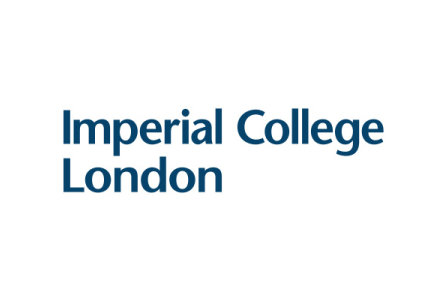Imperial College London: Imperial research translation gets £6.5m boost
Imperial has been awarded close to £6.5 million in UK government funding to accelerate the impact of research.
Imperial is a community of creative thinkers who push the boundaries of knowledge, knowing that scientific breakthroughs are needed to deliver solutions to our major global challenges
Professor Mary Ryan
Professor Mary Ryan, Vice-Provost (Research and Enterprise)
The Impact Acceleration Account awards, from UK Research and Innovation (UKRI), will provide flexible funding to drive the commercialisation of new technologies, support engagement with key partners and stakeholders, and advance changes to public policy based on the College’s world-leading research.
Imperial’s award, which is one of the highest in the UK, is part of a £118 million investment over three years by UKRI which aims to support knowledge exchange, translation and commercialisation at UK research institutions.
The news follows Imperial’s best-ever results in the UK’s Research Excellence Framework (REF), which showed that Imperial has a greater proportion of “world-leading” research than any other UK university and is top of the Russell Group for research impact.
Professor Mary Ryan, Vice-Provost (Research and Enterprise), said: “Imperial is a community of creative thinkers who push the boundaries of knowledge, knowing that scientific breakthroughs are needed to deliver solutions to our major global challenges. This funding will support their ideas, paving the way to the new technologies, businesses solutions, policy and societal engagement we will need for a better, more sustainable and healthier future.”
UKRI Director of Commercialisation Tony Soteriou, said: “The UK is home to some of the brightest, most innovative and creative research teams in the world. They have the ideas and they have the entrepreneurial energy to create businesses and services that could turn sectors on their head. What they need, what every great commercial idea needs, is support in the critical early stages.
“The Impact Acceleration Account is the catalyst that allows projects to grow to the next level, attracting investment, forging partnerships and creating jobs.”
The award is the first to come from UKRI’s harmonised Impact Acceleration Account scheme, which brings together awards from five research councils including the Arts and Humanities Research Council (AHRC), Biotechnology and Biological Sciences Research Council (BBSRC), Engineering and Physical Sciences Research Council (EPSRC), Medical Research Council (MRC) and Science and Technology Facilities Council (STFC).
Impact Acceleration Accounts have a proven track record of driving economic growth, creating jobs and attracting private investment. At Imperial, previous awards have provided early-stage support to projects that are now successful businesses. Find out about some of these below.
Supporting a circular economy
Lixea Limited (formerly Chrysalix Technologies) has commercialised a process which enables wood waste to be used for the production of renewable chemicals, materials and fuels.
Co-founded by Dr Agi Brandt-Talbot (Chemistry), Dr Florence Gschwend (Chemical Engineering) and Professor Jason Hallett (Chemical Engineering), Lixea has developed a low-cost and environmentally friendly solvent based on an ionic liquid, to enable the large-scale production of bio-derived materials, paving the way for a greener alternative to the petrochemical industry.
Their goal is to support sustainability and move away from a reliance on using crude oil in single-use products which are discarded at the end of their lives by enabling a “circular” bio-economy in which plastics are made from waste plant matter and can more easily be recycled and reused.
Lixea’s low-cost and environmentally friendly solvent – brown liquid in a glass jar
Lixea has developed a low-cost and environmentally friendly solvent
Fixing software bugs
GraphicsFuzz, co-founded by Professor Alastair Donaldson (Computing) pioneered a tool for testing graphics drivers that quickly finds and fixes bugs that could undermine reliability and security before they affect end users.
The company was acquired by Google in 2018, establishing a new London-based team at Google focusing on Android graphics driver quality. Google has open-sourced the GraphicsFuzz tool, and it is now being used routinely to find serious defects in graphics drivers that affect the Android operating system and Chrome web browsers.
Professor Alastair Donaldson
Supporting limb rehabilitation
GripAble, formed by researchers at Imperial College London and clinicians at Imperial College Healthcare NHS Trust, is a digital assessment and training platform supporting individuals undergoing rehabilitation for both neurological and musculoskeletal conditions.
Arm weakness can be caused by a range of conditions, including musculoskeletal disorders or brain damage, such as stroke, and it affects over 5 million people in the UK alone. GripAble’s hand-held sensor is used by patients to control a range of digital games and applications, paired with a data system that allows therapists to monitor patient progress, set goals, and deliver a greater level of personalised attention than is usually possible with remote rehabilitation.
The company was set up at Imperial in 2016 as a collaboration between the groups of Dr Paul Bentley, Clinical Director of the Imperial College Network of Excellence in Rehabilitation Technology, and Professor Etienne Burdet from Imperial’s Department of Bioengineering.

